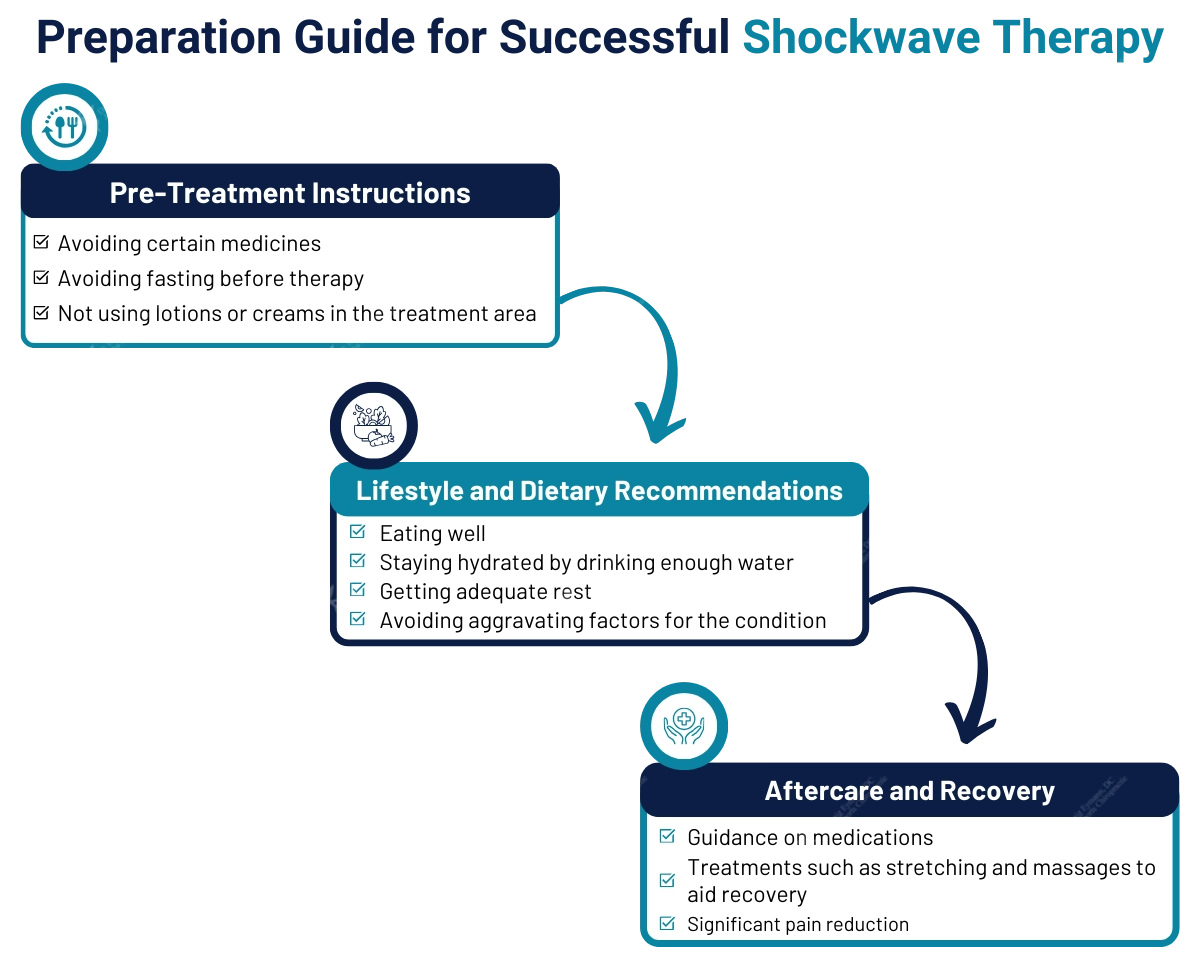Tendonitis occurs when tendons become swollen and painful. This condition can make it hard to move in certain body parts like shoulders, elbows, wrists, knees, and ankles.
It impacts everyone, including athletes and office workers, regardless of age or job. Tendonitis affects daily life, reducing productivity and hindering work or hobbies.
Pain control is essential, and shockwave therapy is a promising treatment option. It eases pain, lessens swelling, and aids healing, giving hope to people with tendonitis.
Understanding Shockwave Therapy
Shockwave therapy is a non-intrusive way of treatment. It uses sound waves to help heal overused areas and manage pain from tendonitis.
These sound waves provide energy to the affected area, improving blood flow, cell remaking, and tissue healing. The therapy aids in the breakdown of damaged tissue, reducing discomfort and improving overall mobility.
Types of Shockwave Therapy

- Extracorporeal Shockwave Therapy: This therapy uses sound waves outside the body to treat the affected area. It helps with long-term health issues and has good effects on healing and pain reduction.
- Low-Intensity Shockwave Therapy: Low intensity therapy uses less energy for shockwave therapy, making it gentler. People often use it for sudden injuries such as tendonitis, and it has been effective in helping tissues heal and reducing inflammation.
The Usefulness of Shockwave Therapy in the Treatment of Tendonitis
Many studies show that shockwave therapy for tendonitis works well. It eases pain and enhances function in patients with this condition, as per National Institute of Health.
One of the most notable benefits of shockwave therapy is that it is non-intrusive. Unlike surgical treatments, shockwave therapy involves no cuts or invasive methods. Instead, it uses high-energy sound waves delivered to the affected area. Sound waves aid in the healing process by lowering inflammation and encouraging the repair of tissues.

Research shows shockwave therapy is a safe treatment for tendonitis. Many trials have found that this therapy has few side effects. People who are unsure about invasive treatments see it as a good choice. Shockwave therapy is safe, and one can have it without any potential harm.
The Process of Shockwave Therapy Treatment
1. Consultation and Assessment
Shockwave therapy starts with a consultation and assessment by a chiropractor. In this step, the chiropractor checks the patient’s medical history and condition to see if shockwave therapy is suitable. He then discusses the treatment goals, possible benefits, and any risks or precautions.

2. Administration of Shockwave Therapy
Once the therapist deems the patient suitable for shockwave therapy, they begin the treatment. The chiropractor uses a small device to send controlled shockwaves to the area that hurts.
The shockwaves’ intensity may vary based on the individual’s pain threshold and the ailment under treatment. The level of pain that the patient can endure and the nature of the disease determine the intensity of the shockwaves to be given.
3. Duration and Frequency of Treatment
The number and length of shockwave treatments are determined by the patient’s health and reaction to medicine. Typically, a session lasts for about 15 to 30 minutes.
The total number of sessions required can range from 3 to 6, with a gap of about 1 to 2 weeks between sessions. The chiropractor will devise the best course of action based on the person’s performance and goals.
Shockwave Therapy's Safety and Adverse Effects

- Temporary pain or discomfort during treatment
- Damage or inflammation at the location of treatment
- Skin reddening
- Numbness
Cost and Insurance Coverage of Shockwave Therapy
Shockwave therapy costs vary according to setting, supplier, and how often one receives treatment.
At Aloha Sports Chiropractic, shockwave therapy costs $500 for four sessions. However, the cost may increase if additional treatments or special equipment are necessary.
Shockwave therapy insurance coverage varies depending on the insurance provider and plan. Specific insurance plans may pay for shockwave therapy wholly or partially, while others may not cover it at all. Inquire about your coverage and payment alternatives for shockwave treatment with your insurance provider.
Preparing for Shockwave Therapy
Preparing for shockwave therapy includes two essential aspects:
1. Pre-Treatment Instructions
Chiropractors give certain guidelines to help patients get ready for therapy. To simplify treatment, they recommend avoiding any medicines, fasting, and not using lotions or creams in the area.

2. Lifestyle and Dietary Recommendations
Before therapy experts focus on making healthy choices that can support the healing process. To stay healthy, they guide you to eat well, drink enough water, rest, and avoid things that worsen the condition. Following these recommendations can help enhance the effectiveness of shockwave therapy.
Aftercare and Recovery
- Post-treatment instructions guide medications, wound care, and activities to avoid.
- Rehab and physical therapy combine exercises and treatments to help patients restore enduranceflexibility, and functionality.
- These activities may include stretching, strengthening exercises, and massages to help restore strength and flexibility.
The Expected Recovery
In most cases people notice significant pain reduction after initial sessions. However, the complete recovery varies based on the injury and sensitivity of the area under treatment.
Is Tendonitis Cramping Your Style?
Contact us for effective shockwave relief—click here!
Get AppointmentThe Final Words
Shockwave therapy is a successful treatment for tendonitis. It offers several benefits, including pain relief, improved function, and faster recovery. However, seeking professional medical advice before undergoing this treatment is crucial.
Seeing a good doctor ensures the proper treatment for you and prevents potential issues. If you are looking for shockwave treatment contact Aloha Sports Chiropractic for lasting relief from pain.



Leave A Comment